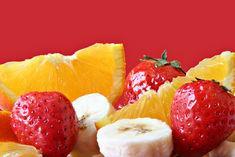
Regularly feeding young children oranges and bananas could halve their risk of developing childhood leukemia, says a new study.
Children who ate oranges, orange juice or bananas between four to six times a week during their first two years of life had a significantly reduced risk of developing the cancer, revealed an observational study by US researchers.
Previous studies on childhood leukaemias have not examined the effects of the overall diet in this way, focusing more on possible risk foods like cured meats. "Our study is unique, and we have elucidated a significant protective association with the consumption of oranges, bananas and orange juice," said Marilyn Kwan, an epidemiologist at the University of California, Berkeley.
However, she added it is difficult to to make firm public health recommendations based on the evidence the study throws up. The evidence was presented at Children with Leukaemia’s international leukaemia conference in London, UK, on Thursday.
Oranges and bananas may protect against childhood leukemia because they are a rich source of vitamin C, which is an antioxidant. They could act by reducing oxidative DNA damage, and so stop the initiation of cancerous processes. Bananas are also rich in potassium. Animal studies have indicated that potassium stabilises DNA and can reduce rates of mutation.



